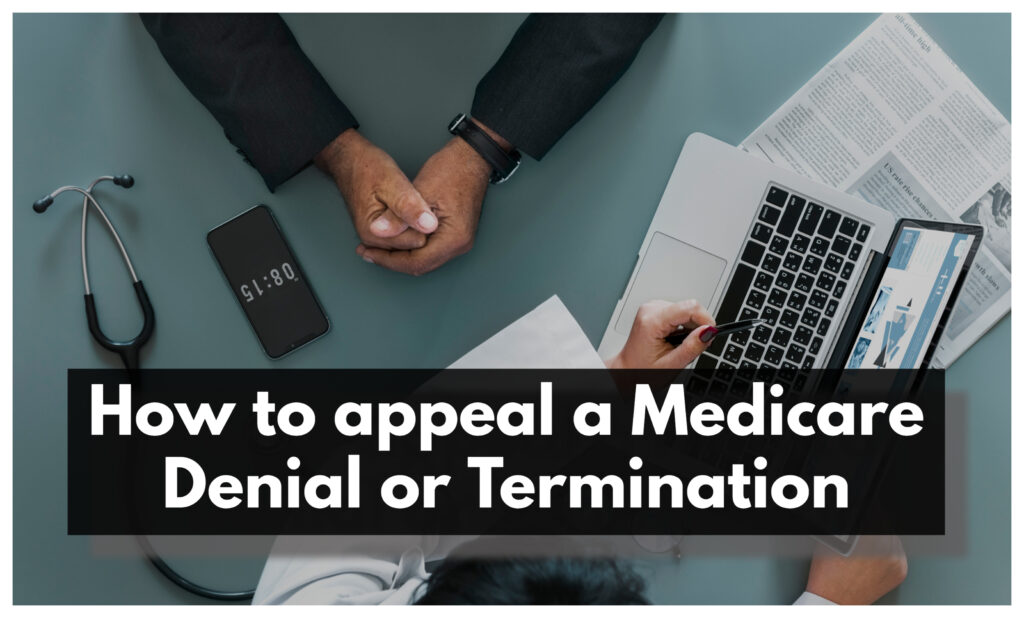As healthcare costs continue to increase, many senior citizens are turning to Medicare to provide them with much-needed coverage. It is a federal health insurance program designed to provide coverage for those aged 65 and over, or those who are disabled or have end-stage renal disease.
It is estimated that one in three individuals aged 65 and over, and nearly two in three individuals aged 85 and over, are enrolled in Medicare. Understanding the eligibility requirements and knowing how to apply for Medicare is essential for senior citizens to receive the coverage they need.
Contents
- 1 Overview of Medicare Eligibility Requirements
- 1.1 Age Requirements
- 1.2 Prefer to listen rather than read?
- 1.3 U.S. Citizenship or Legal Residency Requirement
- 1.4 Must have Satisfied the Social Security Taxes for a Minimum of Ten Years
- 1.5 How to Apply for Medicare
- 1.6 Financial Eligibility Requirements
- 1.7 Healthcare Coverage Options
- 1.8 Additional Benefits for Certain Categories of Beneficiaries
- 1.9 How to appeal a Medicare Denial or Termination
- 2 Conclusion
Overview of Medicare Eligibility Requirements
In this blog post, we will provide an overview of the eligibility requirements, as well as tips on how to apply.
Age Requirements
The first Medicare eligibility requirement is age; you may become eligible for benefits when you turn 65.

Prefer to listen rather than read?
In certain instances, individuals may be eligible for Medicare before the age of 65. This is because those with certain medical conditions or disabilities, such as end-stage renal disease, permanent disabilities, or amyotrophic lateral sclerosis (ALS) may be considered for early enrollment in the program.
Furthermore, those individuals who have been diagnosed with ALS will have immediate access to Medicare Part A coverage, while those with end-stage renal disease, permanent disabilities, or other eligible conditions may qualify for both Part A and Part B coverage.
If you believe that you or someone you know may be eligible for early Medicare enrollment, it is important to speak with a qualified healthcare professional for further information.
Individuals Over the Age of 65 Are Automatically Eligible
Individuals over the age of 65 are automatically eligible to receive its benefits, and those under 65 who are receiving Social Security Disability Insurance benefits for 24 months or more are also eligible. It is important to remember that to receive the full benefits of the program, enrollees will need to sign up during their initial enrollment period.
Those who delay enrollment may face higher premiums. Additionally, those with lower incomes may be eligible to receive assistance with premiums, deductibles, and copayments through the Medicare Savings Program.
For those without Medicare, it is important to understand the eligibility requirements and explore all available options. It provides health insurance coverage for elderly and disabled individuals, and some benefits are available at no cost or a reduced cost.
U.S. Citizenship or Legal Residency Requirement
To be eligible for Medicare benefits, you must be a U.S. citizen or legal resident. This means that you must have a valid Social Security Number (SSN) issued by the Social Security Administration.
Must Present a Valid Social Security Number
To qualify for benefits, individuals must be U.S. citizens or legal residents with a valid Social Security Number (SSN) issued by the Social Security Administration. U.S. citizens can obtain a Social Security Number through their local Social Security office or by applying online via the Social Security Administration website.

Proof of U.S. Citizenship or Lawful Alien Status
An individual must provide proof of his or her identity and age, as well as proof of U.S. citizenship or lawful alien status. The individual must also provide proof of earnings from employment or self-employment, such as a W-2 or 1099 form, to be eligible for a Social Security Number. Once the application is processed, the Social Security Administration will mail the individual his or her Social Security card.
INS Documentation
In addition to a valid Social Security Number (SSN), individuals may also use other valid forms of U.S. Immigration and Naturalization Service (INS) identification to demonstrate their lawful presence in the United States.
Examples of acceptable INS documentation include a permanent resident card (commonly referred to as a “green card”) or an employment authorization document. Alternatively, individuals may have documentation issued by the Department of Homeland Security (DHS), such as an I-94 Arrival/Departure Record, and an I-766 Employment Authorization Card.
It is important to note that copies of these documents if you are not a U.S. citizen or legal resident, may still qualify if you meet certain Medicare eligibility requirements.
Must have Satisfied the Social Security Taxes for a Minimum of Ten Years
The third requirement is that the applicant must have paid Social Security taxes for at least 10 years. This means that the applicant must have worked and paid Social Security taxes for 10 or more years prior to the onset of the disability, with no breaks in the coverage.

Earned at Least 40 Credits
In order to complete the Medicare eligibility requirements, most people must have worked for a total of 10 years, or earned at least 40 credits. Generally, individuals get one credit for each quarter of work in which they earn at least a certain amount of income.
For example, in 2020, the threshold for receiving one credit is $1,410. Therefore, if someone earns at least $5,640 in a year, they will receive four credits. It is important to note that credits are only awarded for work done in the United States.
Furthermore, individuals who have worked for at least 40 calendar quarters qualify for premium-free Medicare Part A. The applicant must also provide proof of having paid Social Security taxes over the past 10 years. If an individual is unable to provide proof, the Social Security Administration will contact the employer(s) to obtain the records.
It is important to note that even if an individual meets all of these eligibility requirements, they may not be eligible for all Medicare benefits, as certain benefits require additional criteria.
How to Apply for Medicare
Applying for Medicare coverage is a straightforward process, but it is important to ensure that all of the necessary information and documents are included in the application.
Determine Eligibility for Medicare
- Check whether or not you satisfy the above-mentioned eligibility requirements.
Gather Documents (Social Security Number, Birth Certificate, Etc.)
- Prior to applying for Medicare, it is important to gather all teh necessary documents required for enrollment.
- This will include your Social Security number, your birth certificate, any other applicable documents, and any current insurance information.
- Additionally, if you are applying for Medicare due to a disability, you will need to provide proof of your disability.
- It is also helpful to have a list of any current medications and dosages you may be taking.
- After gathering all of the necessary documents and information, you can begin the application process.

Complete the Online Application
- For most applicants, the easiest and quickest way to apply is to do so online via the Social Security Administration website.
- Applicants should have all pertinent information readily available, such as proof of age, residency, and income.
- If the information is not readily available, the applicant may submit an application by mail.
- It is important to note that the application must include all necessary documents and information to process the request.
Check the Status of Your Application
- All applications will be thoroughly reviewed by Social Security Administration staff before being approved.
- Your application will be processed within two weeks and you will receive a letter confirming your status, either approved or not.
- If you are approved, you will receive your card in the mail in the following weeks.
- In some cases, you may need to provide additional information or documents to complete your application, in which case you will be informed in the letter.
- If you have not received your card after two weeks of receiving the letter, please contact your local Social Security office for assistance.
Set up Payments and Coverage
- Once you have gone through all of the necessary steps of completing any relevant requirements, and applications, and have been approved, the next step is to set up all necessary payments and coverage.
- This will involve understanding the different available plans, and determining which one is most suitable for your needs.
- You may need to contact providers to discuss their coverage, as well as any additional costs that may be associated with their services.
- After deciding which plan is best for you, you will need to arrange for the payments to be set up, whether through automatic deductions or other payment methods.
- Once you have completed this step, it is important to review the coverage to ensure that it is providing you with the protection and services that you require.
Financial Eligibility Requirements
To qualify for Medicare benefits, individuals must meet certain financial eligibility criteria. This includes having an income that falls below certain thresholds and having certain assets.

Eligible individuals must have an income that is at or below 135% of the federal poverty line, while individuals over the age of 65 may qualify even if their income is up to 200% of the poverty line. Additionally, individuals must demonstrate financial need, which is determined by their assets.
Eligible individuals must have assets taht are within certain limits, such as a home and a car, as well as cash savings and investments. Individuals who don’t meet the financial criteria may still be eligible for certain state programs that provide health insurance coverage.
These limits are updated annually and may vary based on the individual’s circumstances. The Social Security Administration also determines these limits which may vary based on the individual’s circumstances.
It is important to note that these criteria may differ if the individual is applying for Medicare benefits on behalf of a dependent.

Healthcare Coverage Options
Before determining eligibility for Medicare, it is important to understand the different types of coverage available. There are a variety of healthcare coverage options available to senior citizens who are eligible for Medicare.
Part A of Medicare
- It covers inpatient hospital care, skilled nursing care, hospice care, and some home healthcare services.
- This includes hospital stays, skilled nursing care, hospice care, and some home healthcare services.
- Inpatient hospital care is when a beneficiary is admitted to a hospital for an illness or injury.
- This can include both emergency and non-emergency stays.
- Skilled nursing care is a type of care that can be provided in a hospital or other facility.
- This includes rehabilitation services and skilled nursing services.
- Hospice care is a type of medical care that helps relieve pain and provide comfort to those facing a terminal illness.
Part B of Medicare
- It covers certain doctor’s services, outpatient care, medical supplies, and preventive services.
- Part B covers a variety of healthcare needs including physician services, outpatient care, and preventive services.
- Medicare Part B also covers medical supplies and equipment that are necessary for the treatment of your or a family member’s medical condition, such as durable medical equipment (DME) and prosthetics.
- Covers certain preventive services such as vaccinations, screenings, and diagnostic tests that are recommended by your doctor to help you stay healthy, prevent or detect illnesses and health conditions, and manage chronic conditions.
Part C of Medicare
- (Also known as Medicare Advantage) is a private health insurance plan that provides all Part A and Part B benefits and may include additional benefits, such as vision, hearing, and dental coverage.
- Seniors can consider a Medicare Advantage plan, which is an all-in-one policy that covers hospital visits, doctor visits, prescription drugs, and other benefits.
Part D of Medicare
- Seniors can also opt for a Medicare Supplement plan, which covers additional costs such as copayments, coinsurance, and deductibles.
- It covers prescription drugs.
Additional Benefits for Certain Categories of Beneficiaries
In addition to the benefits available to all Medicare beneficiaries, certain categories of beneficiaries may be eligible for additional benefits. For example, those who are eligible for both Medicare and Medicaid may receive additional benefits such as personal care services and prescription drugs.
Coverage for Dialysis and Kidney Transplants
Low-income individuals may be eligible for additional financial assistance in paying for Medicare premiums and co-pays. Individuals with End-Stage Renal Disease (ESRD) may be eligible for additional benefits, including coverage for dialysis and kidney transplants.
Finally, people with disabilities may be eligible for additional benefits, such as services that help them remain independent in their homes.

How to appeal a Medicare Denial or Termination
Medicare is an insurance program designed to provide coverage for health care services for eligible individuals. Unfortunately, Medicare can sometimes deny or terminate coverage, leaving seniors in a difficult situation.
Fortunately, if you receive a denial or termination notice, you have the right to appeal it by filing a request for reconsideration.
Understand the Denial or Termination
- Understanding the Medicare denial or termination is an important part of the appeals process.
- To begin the appeals process, it is essential to know exactly why the denial or termination was issued and what regulations it was based on.
- This understanding can be achieved by carefully reviewing the denial or termination letter you received, and then researching the appropriate Medicare regulations and statutes.
- Having a full grasp of the denial or termination and the regulations behind it can help you to properly formulate your appeal and provide the necessary evidence to prove your case.
- Additionally, being aware of the appeals process and all of its steps can also help to ensure that you have the best outcome possible.
Request an Appeal
- If you have received a Medicare denial or termination, you may appeal this decision by filing a request for reconsideration.
- This is a formal request to have the Medicare decision reviewed by a higher-level official. All requests for reconsideration must be submitted to your Medicare contractor within 120 days of the date of the original decision.
- It is important to provide a thorough explanation of why you disagree with the initial decision in your reconsideration request.
- You may also be required to provide additional information or clarifications.
Gather Evidence and Documents
- This should include supporting documentation such as medical records, doctor’s notes, or other evidence of why the decision should be overturned.
Submit Your Appeal
- Once your request is received, you will be notified of the status of your appeal and of any additional steps you need to comply with.
Follow Up With Medicare
- If the appeal is unsuccessful, you can file an administrative appeal, which is a review by an administrative law judge or an appeals council, depending on the situation.
It is essential for any individual to be knowledgeable of the appeals process and to be adequately prepared. Understanding the process, being well-equipped with relevant information, and following the necessary procedures are all essential steps for ensuring a successful appeal.
It is recommended to familiarize yourself with the specific laws and regulations of the appeals process, as well as any procedures that may be unique to the situation at hand.
Conclusion
In conclusion, Medicare provides essential healthcare coverage for senior citizens. To ensure that they are eligible, they must meet certain Medicare eligibility requirements, including age, residency, and U.S. citizenship or immigration status.
For those that do qualify, Medicare can provide access to a range of services, including hospital care, prescription drugs, and preventive care. With the right knowledge and understanding, senior citizens can ensure that they can make use of the vital benefits that Medicare offers.
If you think this information was helpful, you may also like to read Maximizing Your Retirement Savings Through Intelligent Investing.



